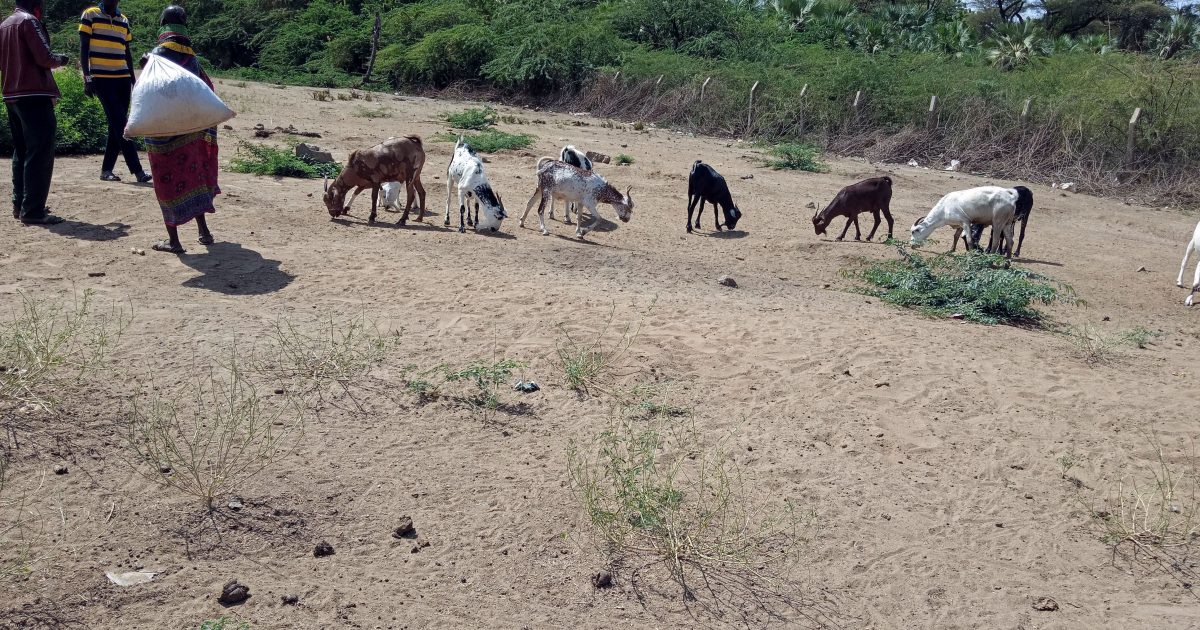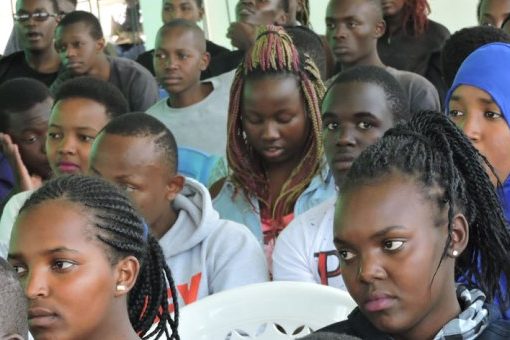Livestock traders in Turkana have been forced to devise alternative ways of keeping their livestock healthy despite the ongoing drought, in order to fetch good prices in the market.
The traders who are greatly affected by the current biting drought across the County, have decided to buy feeds for their animals, which they intend to trade off to meet domestic and commercial needs.

Majority of livestock traders in Lodwar town, complain of the prolonged drought evidenced this year, which has resulted in low livestock prices due to poor quality, after the natural pastures depreciated, as a result of low rainfall.
Ereng Lokai, a livestock trader at the Lodwar Livestock Market and resident of Nakamane in Loima Sub-county, said they need to buy grass to supplement the little animals get at the grazing fields, so that they may remain healthy, in order to earn a good selling price at the Market.
“The price you sell depends on how you take care of your livestock which you intend to sell, at times we are forced to buy some grass and grains, to feed the ones we would wish to bring to the market, if not so, you will end up making heavy losses,” said Lokai.
He said the situation makes them to incur additional expenses, which would eventually reduce profits.
Simon Ekidor, who trades in both donkeys and camels at Lodwar Livestock Market, said the drought has posed a great threat to traders, especially those who trade in bigger animals, for they require a larger amount of feeds as compared to goats and sheep.
“We have been forced to keep our camels, cows and donkeys at home, until they regain their health and weight when the rainy season commences, because now they won’t earn any good price in the market due to low quality and emaciation,” said Ekidor.
The livestock traders now urge the government to intervene, by providing them with animal feeds, to help them evade losses resulting from the death of livestock, due to drought.
On the other hand the prices of vegetables in Turkana, remain unaffected because most fresh produce, is sourced from West Pokot and Trans Nzoia Counties, which are relatively not adversely affected by drought.
By Ekuwam Sylvester





